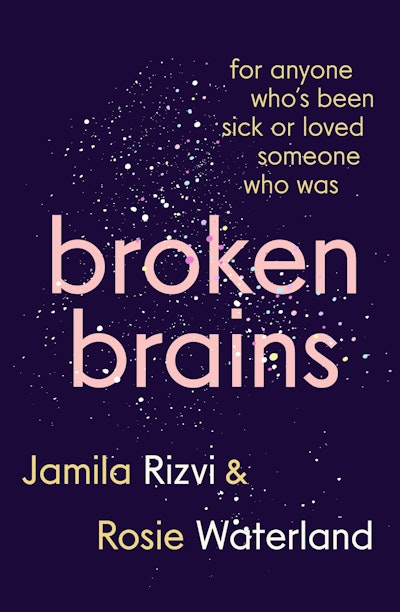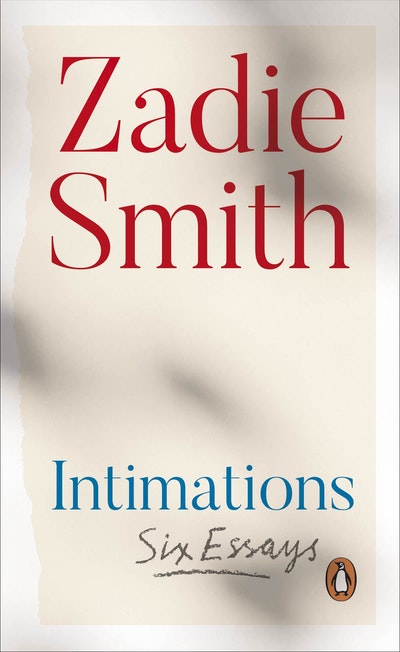- Published: 6 May 2025
- ISBN: 9781760895334
- Imprint: Penguin
- Format: Trade Paperback
- Pages: 336
- RRP: $36.99
Broken Brains
Extract
JAMILA
‘Jamila, your scan shows a lesion on the brain,’ the doctor explains.
She keeps talking but I don’t hear her. The words wash over me without touching the surface of my consciousness. Lesion. I turn the word over and around and upside down, examining it from every angle. Lesion.
‘Sorry, but what do you mean by lesion?’ I interrupt.
‘It’s a growth . . .’ replies the doctor, quietly.
‘A growth, like a tumour?’ I interrupt again.
‘Yes, like a tumour,’ says my husband. Jeremy, unlike me, has been listening.
Tears fall silently down my cheeks, and not elegantly like in the movies but in big plops of salty fluid. Leaning across the desk, I take the slip of paper from the doctor’s outstretched hand. I read craniopharyngioma for the first time and wonder how something so long and complicated could have been growing inside my head without me knowing about it.
What I don’t know is that this word will soon become as familiar as my own name. That my team of specialist doctors and allied health professionals will grow so large, my son Rafi won’t be able to count them on his fingers anymore. That the process of tumour removal won’t be a shocking one-off event but a periodic hell of painful, punishing surgeries and treatments. That soon, a single day won’t pass where I am not managing the impact of disabilities I’m going to acquire. That everything – my relationships, my work, my cognition, my body, my confidence, my independence, my youth, my pain-free existence, my very sense of self – is about to change. Irrevocably.
There are some people who are blessed with ordinary lives that are extraordinary in their simple good fortune. For 31 years, mine was one of those. Looking back, I realise just how many things I took for granted. Chief among which was my health.
As news spread through our community, the house began to resemble a florist’s shop. The most surprising and generous care packages arrived. Jeremy and I were overrun with meals, offers of rides to appointments and babysitting services. People I’d considered mere acquaintances reached out and shared their own stories of sickness and recovery. Their tales of survival made me feel more hopeful and less helpless. Countless wonderful humans emerged from the tapestry of my life, pledging help, and trying their utmost to understand.
By the end of that week, we had eleven lasagnes in the freezer.
ROSIE
I never got any lasagnes.
I’m about to admit having the terrible thought you’re never meant to admit having. It’s a thought that comes late at night when I can’t fall asleep, usually because I’m panicking about whether the amount of exclamation points I put in an email that day came off as friendly or deranged. Late at night, wedged between those kinds of harmless thoughts, is when I have the unforgivable one.
I sometimes wish I had a brain tumour like Jamila’s.
The very thing that completely rocked her world and fundamentally changed her as a person. The very thing that brought heartbreak and pain and sorrow and stress into her life and the lives of her loved ones. I have wished for that thing. Been jealous of it, even. Because if I had it – a tangible thing on a scan – I could point to it and say, ‘Look! Here it is! Here is “The Real Thing That Is Wrong with Me”!’
I have often wished so badly for something tangible to explain, to excuse, my broken brain. Maybe then I would have got some lasagnes. Maybe then I would have thought I deserved them. And I don’t even really like lasagne.
But even with the absence of a craniopharyngioma (damn it, it even sounds impressive), my brain has been chronically unwell. Sometimes life-threateningly so, and for a very long time. I’ve been hospitalised several times. I need daily medication for a variety of symptoms. I’ll likely need some form of ongoing treatment for the rest of my life. I’ve not reached the milestones I hoped to by now, in my career or personally, because so much of my time and focus has been spent dealing with my invasive and exhausting broken brain.
So what’s my gripping and heartbreaking ‘Diagnosis Day’ story? What can I tell you about the big moment I found out what I’ve ‘got’? Um . . . I don’t really have one of those either.
What I do have is a brain that was being damaged from the moment I was born. A childhood filled with abuse, neglect and persistent exposure to toxic stress interrupted what experts call ‘the very architecture’ of my developing brain and body. By the time my most severe symptoms started to appear as a teenager, I was living with the mental health equivalent of a traumatic brain injury that had been getting progressively worse for years. An injury that comes with a similar risk of mortality to someone with a craniopharyngioma.
But no freezer filled with lasagnas.
Broken Brains Jamila Rizvi, Rosie Waterland
A personal book about physical brain health and mental brain health, and how they coexist in two very different spaces.
Buy now











